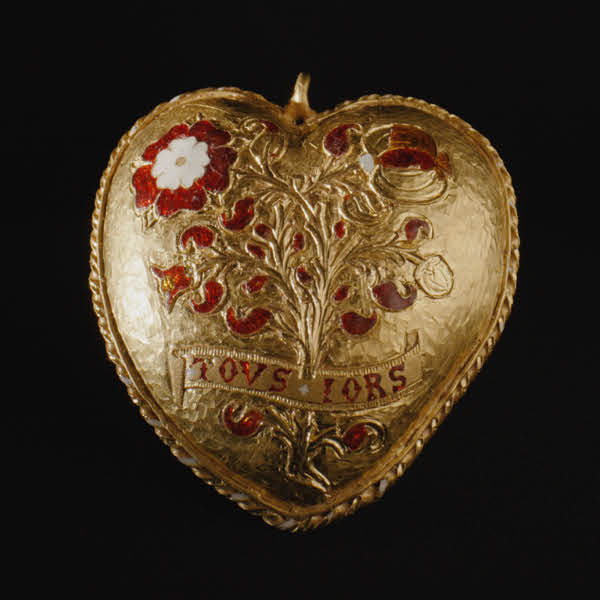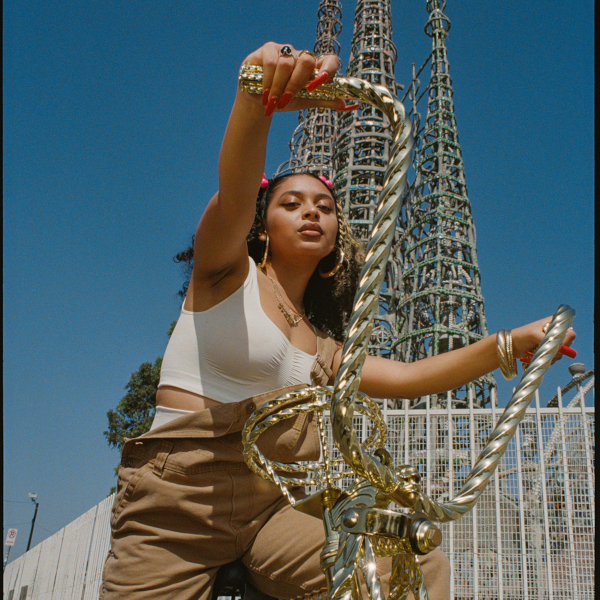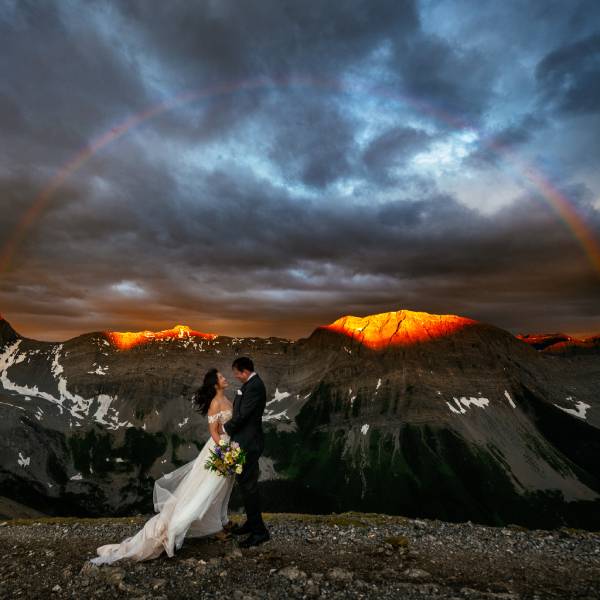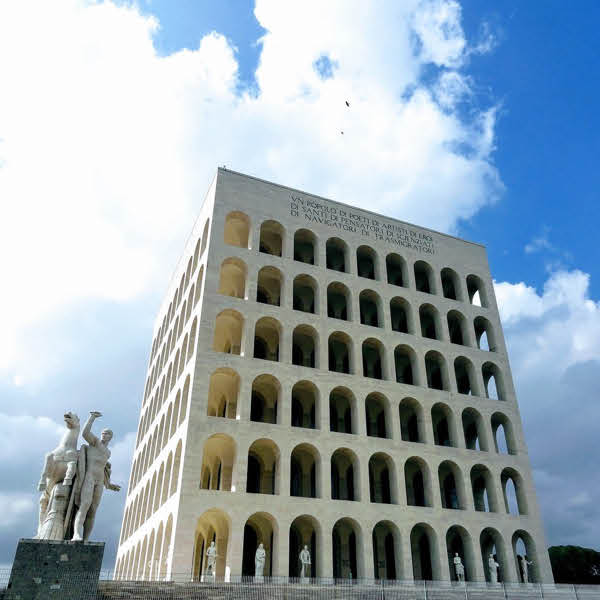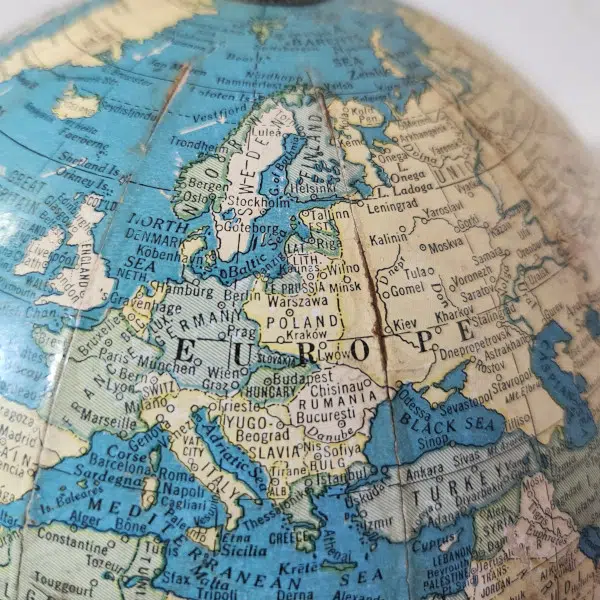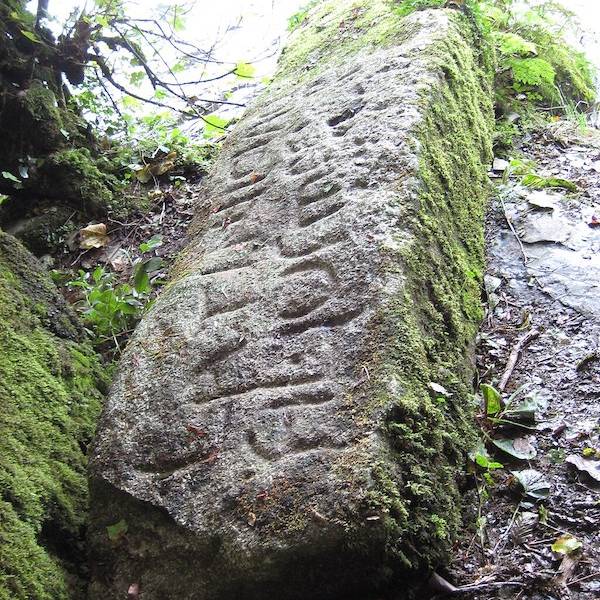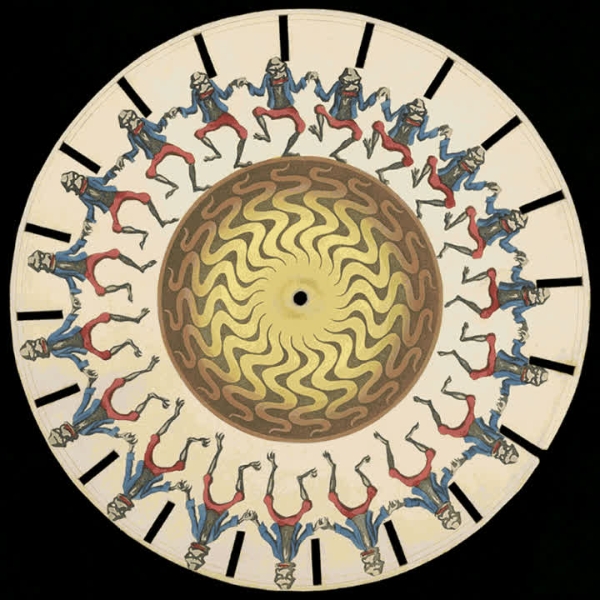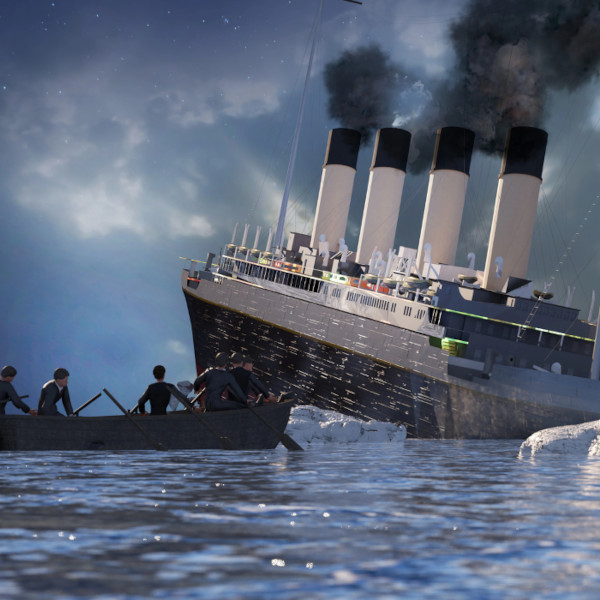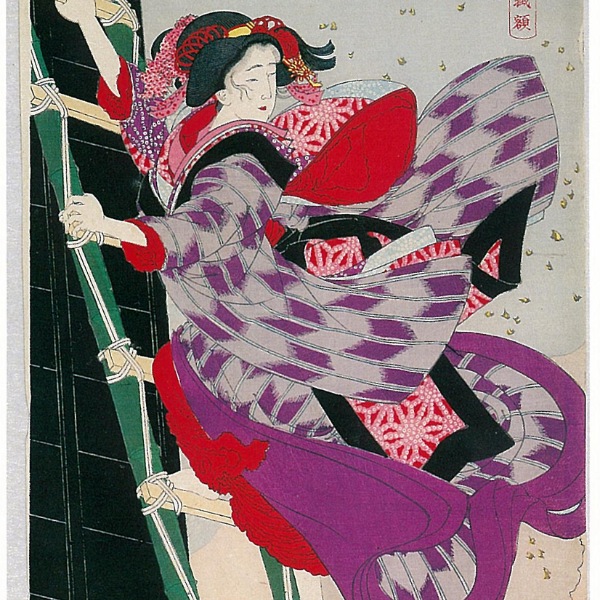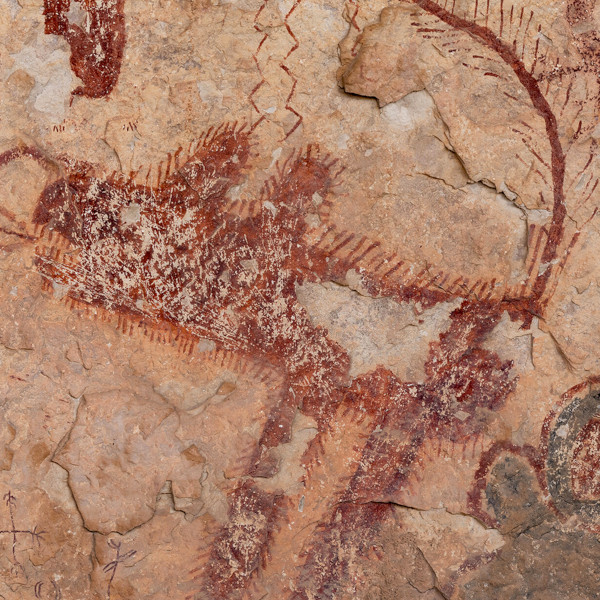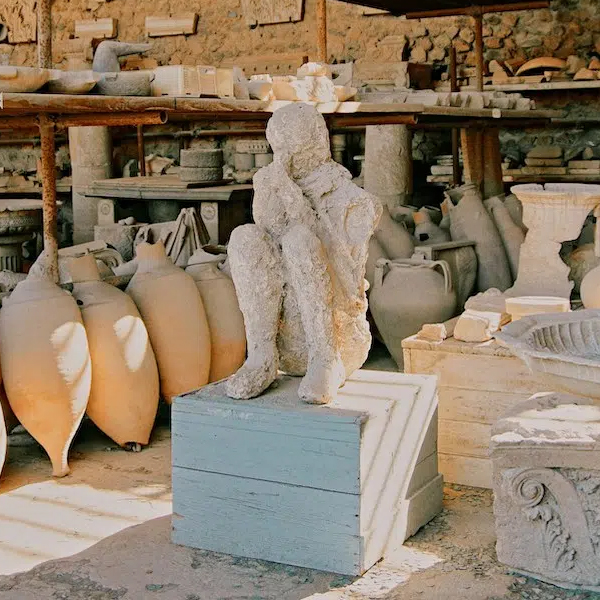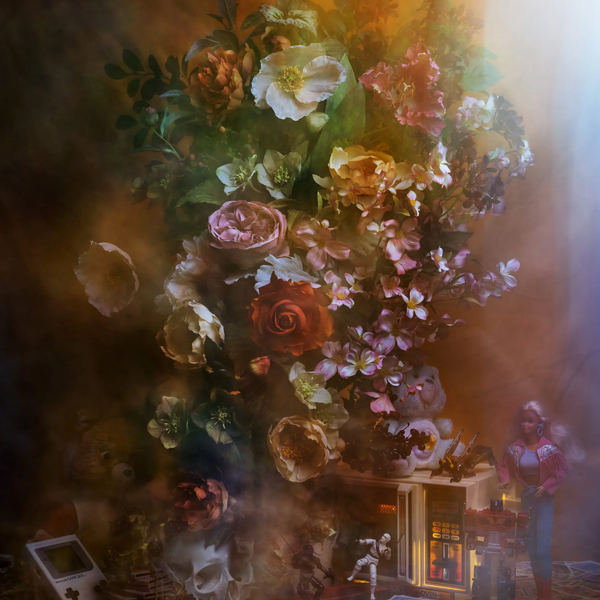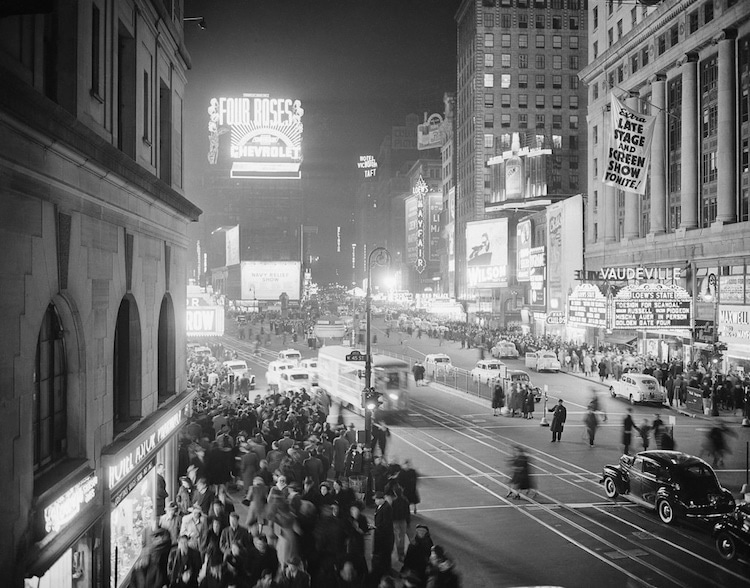
Sixteen signs in Times Square were turned out by one small switch operated by Douglas Leigh, sign designer, in New York, March 1, 1942.
New York City in the 1940s was buzzing with activity, with the population of Manhattan almost reaching 2 million inhabitants. These incredible black and white photographs, which document everyday life in New York City, are a glimpse back at this era.
From street peddlers selling fish or fresh ears of corn, to cars stalled under mounds of snow, scenes are both familiar and nostalgic. They also capture incredible moments in history, whether it be New Yorker's mourning the death of Franklin Roosevelt or jubilation upon hearing the news that the Japanese accepted the allies terms of surrender, effectively ending WWII. In fact, the effects of WWII are omnipresent in the photos, most evidently from the extensive dimouts visible in the images.
It's also possible to see the changing architectural landscape of the city and to remember how some spaces, like Times Square, have always been hubs of activity. Take a look back at daily life in 1940's New York City with these unforgettable images.
Wonder what daily life in New York City was like in the 1940s? These photos tell the visual history of the city.
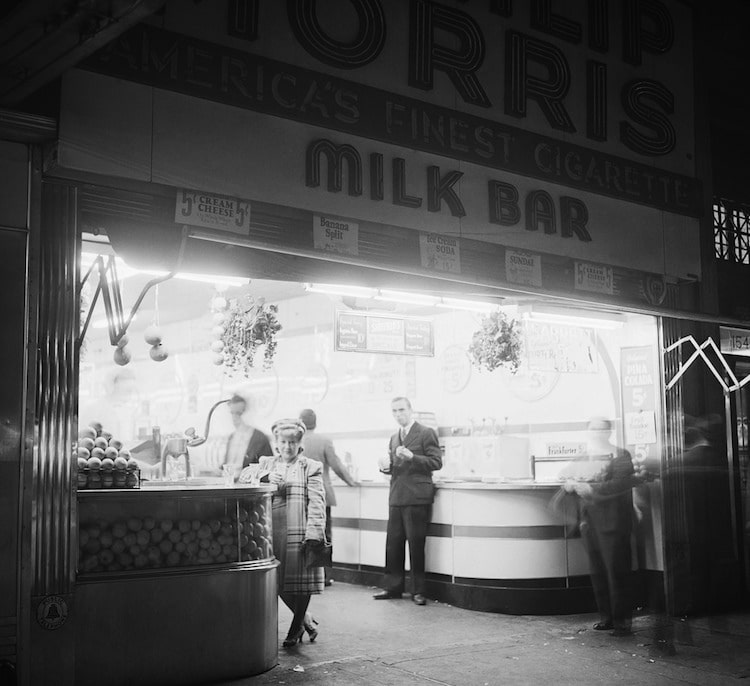
Customers gather at soft drink stand during a dimout in Times Square, New York, May 21, 1942. Dimouts were necessary to conserve energy and also cloak the city and surrounding waters in darkness in case of enemy attack.
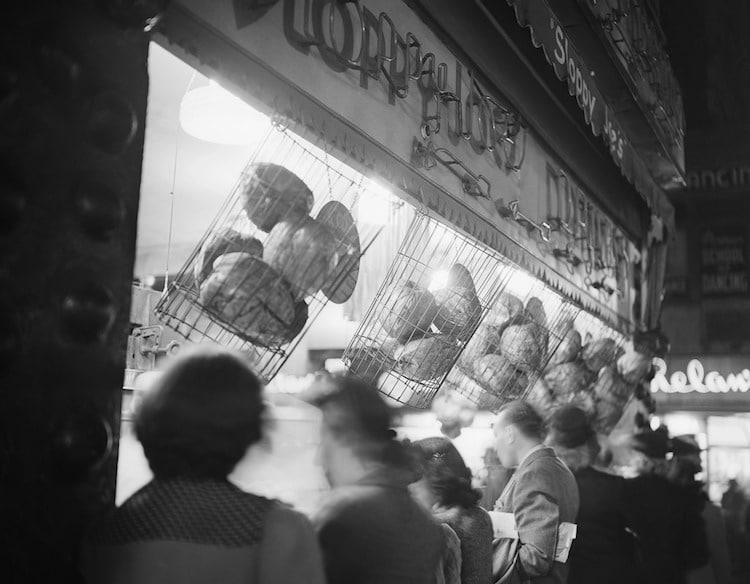
A crowd of customers gather at Sloppy Joe's soft drink stand during a dimout in Times Square, New York, May 21, 1942.
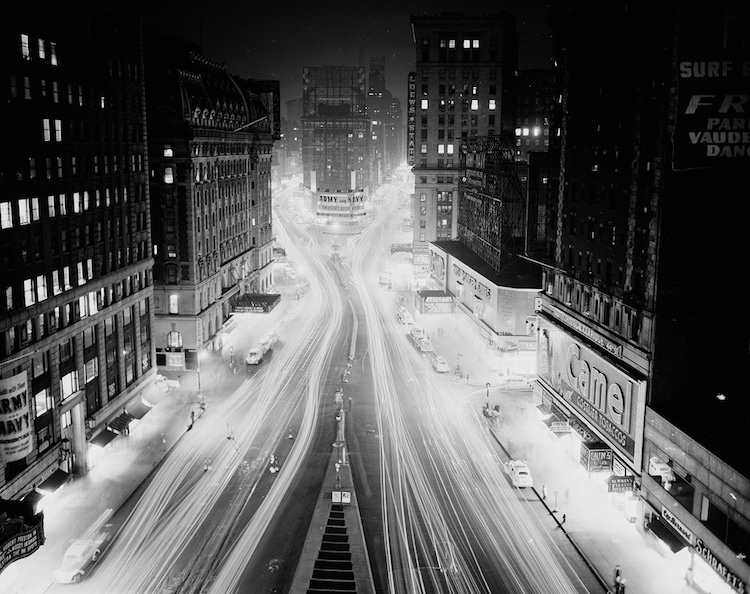
This is an aerial view of Times Square looking north from the New York Times newspaper building at 42nd St., during a dim-out in midtown Manhattan on May 20, 1942 in World War II. The large signs illuminating Broadway, street on left, are out in addition to the marquee lights above the theaters and restaurants along Seventh Ave., right.
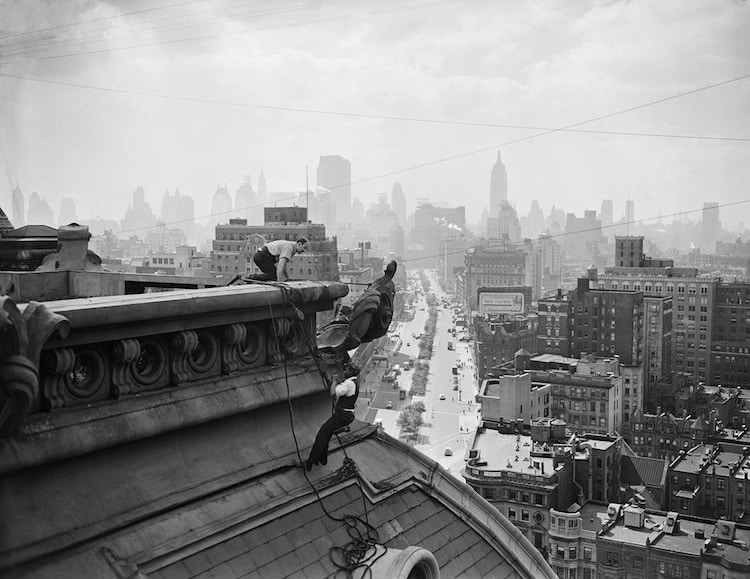
Workmen prepare to lower one of the 100-pound metal cornices from the Hotel Ansonia in New York, Sept. 22, 1942. The hotel began scrapping thousands of pounds of ornamental metal work to help in the war effort.The building designed by Stanford White, was architecturally outstanding because its wealth of metal Ornamentation.
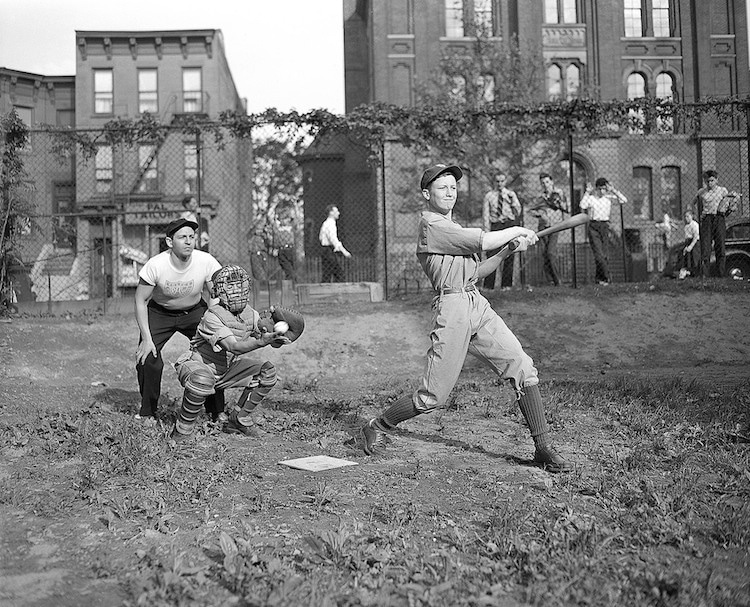
Charles Dunne swings and misses at a ball during a practice session of a P.A.L. team in Brooklyn, N.Y., June 9, 1943. The catcher is Frank Pesce and the umpire is Joe DiMaggio, not the Big League outfielder. Joe's the coach of the team.
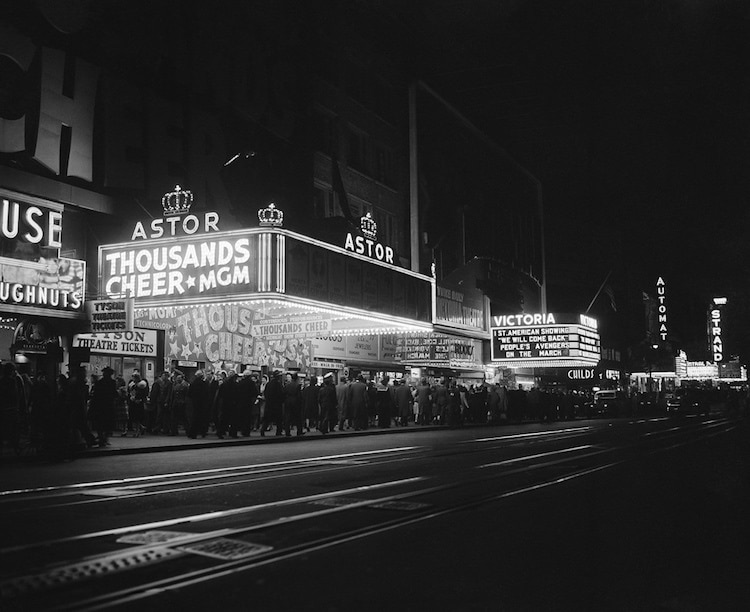
After 18 months in the dark, theater marquees on Broadway light up again while underneath the crowds come out of the dimout gloom in New York, Nov. 2, 1943.
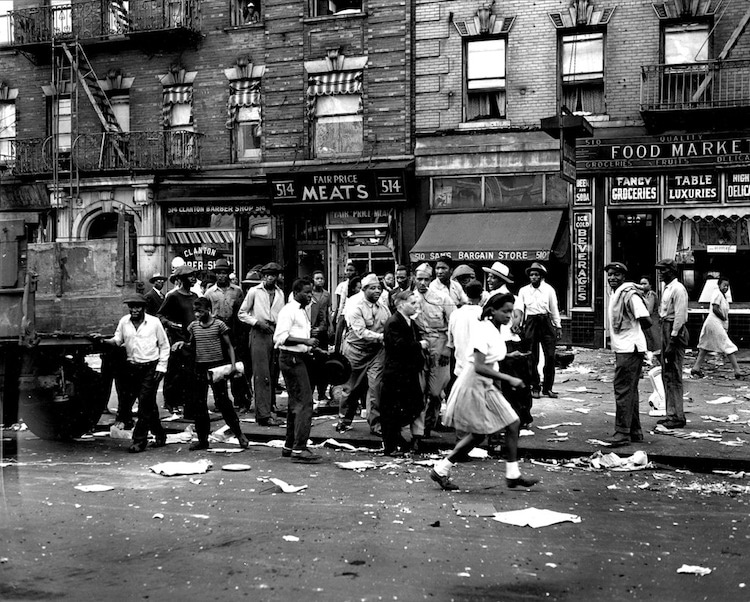
Two black Army soldiers assist a white man who was involved in a scuffle that occurred during the outbreak of a race riot in the Harlem area of New York City, Aug. 2, 1943.
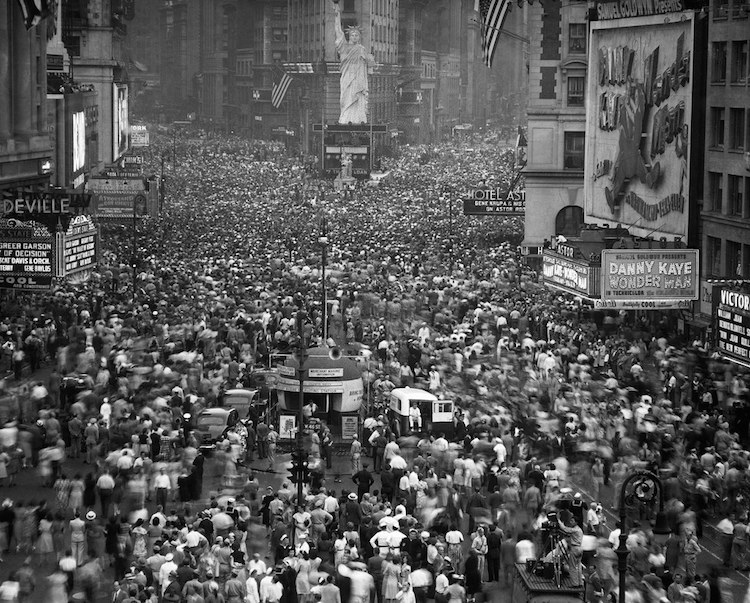
A huge crowd in New York's Times Square jubilantly welcome the news that the Japanese had accepted the allies terms of surrender on Aug. 14, 1945.
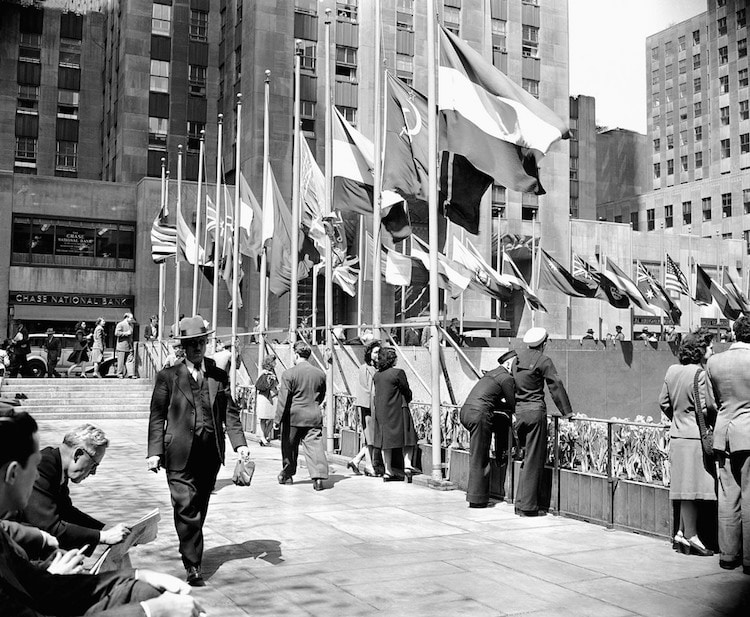
Observing the death of President Roosevelt, the United Nations flags fly at half mast at Rockefeller Plaza, New York, N.Y. on April 13, 1945.
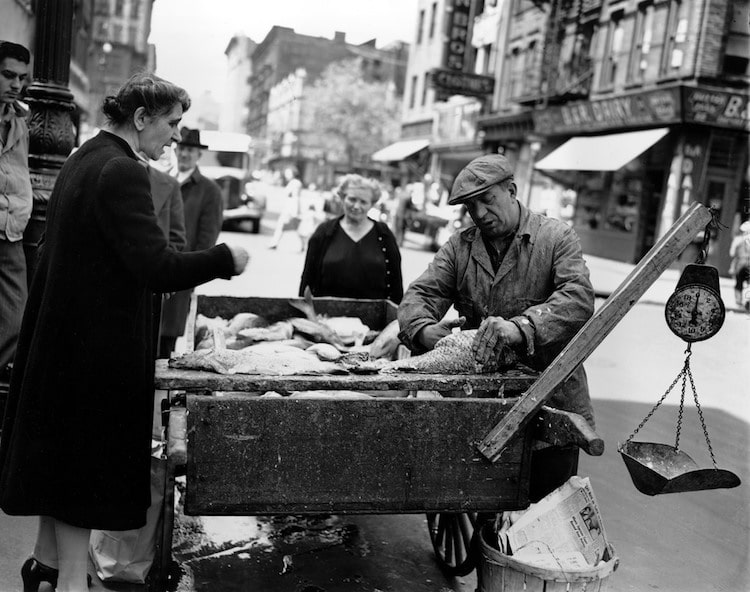
An open pushcart vendor cleans fresh fish before weighing it for a customer at the corner of Orchard St. and Stanton in the Jewish section of New York's Lower East Side on June 1, 1946.
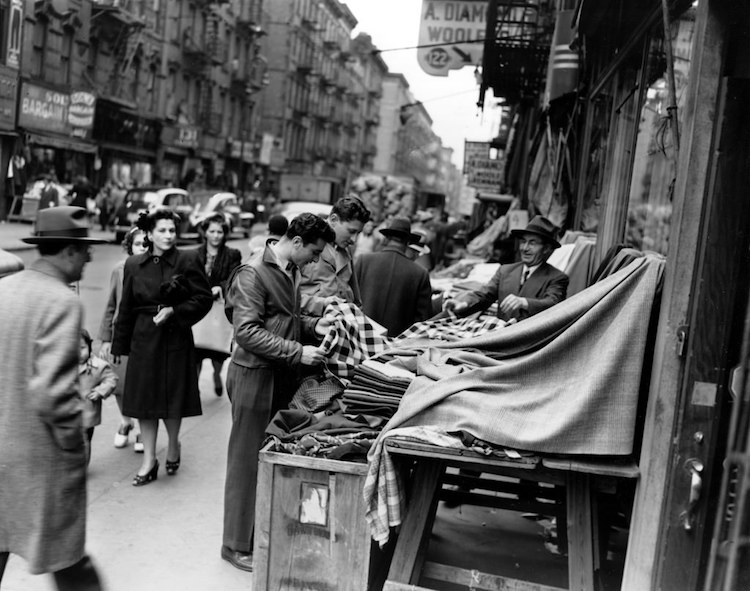
Men stop to look at fabric for sale at an outdoor table in front of a store in New York's Lower East Side on June 1, 1946.
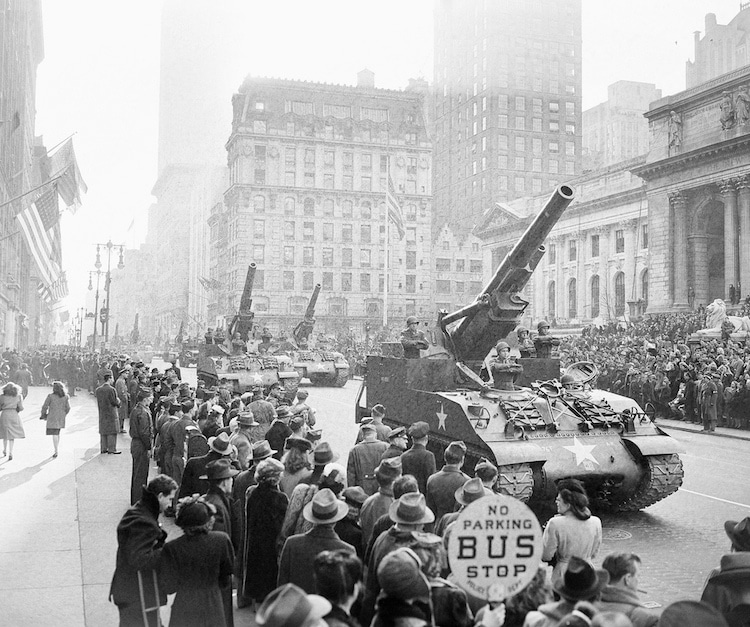
Soldiers stand rigidly at attention in their vehicles which carry 8-inch Howitzers, during the Victory Parade of the 82nd Airborne Division on Fith Avenue in New York, Jan. 12, 1946. The parade is passing the reviewing stand in front of the Public Library, right.
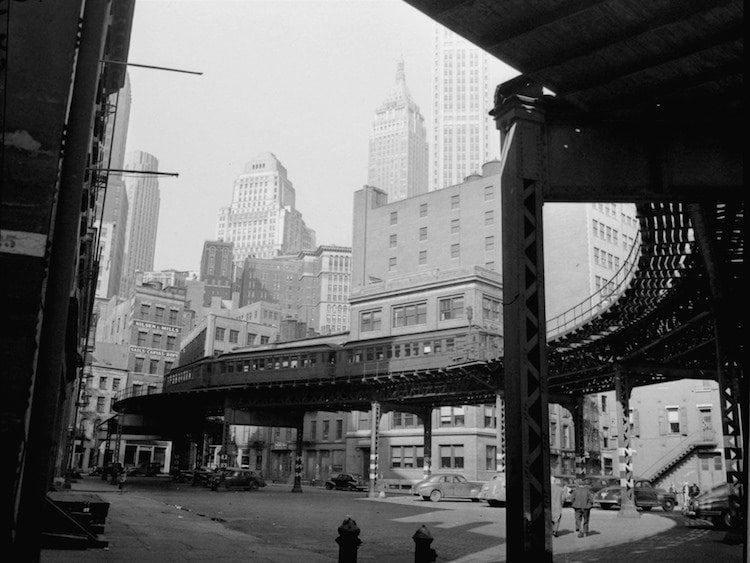
The Third Avenue el winds its way through lower Manhattan, February 12, 1946.
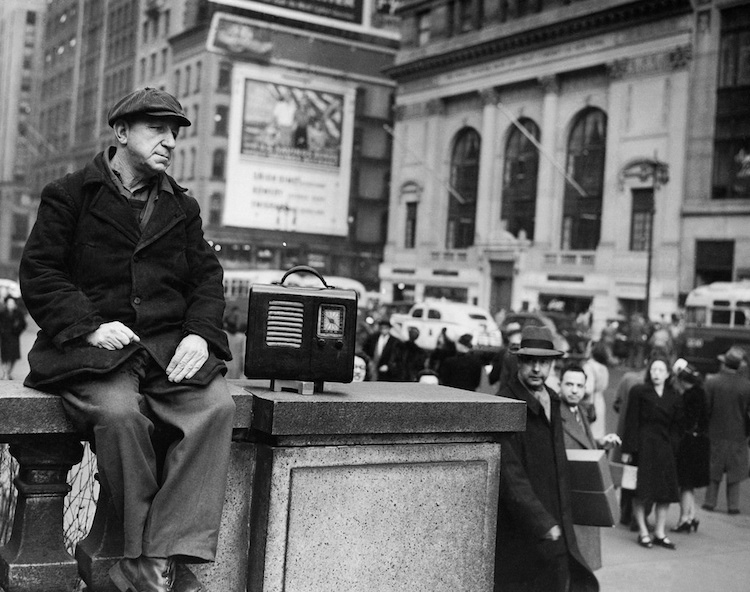
Otto Feinberg, a longshoreman, listens to his radio as he sits on the terrace wall in front of the New York Public Library on the corner of 42nd Street in New York January 29, 1947.
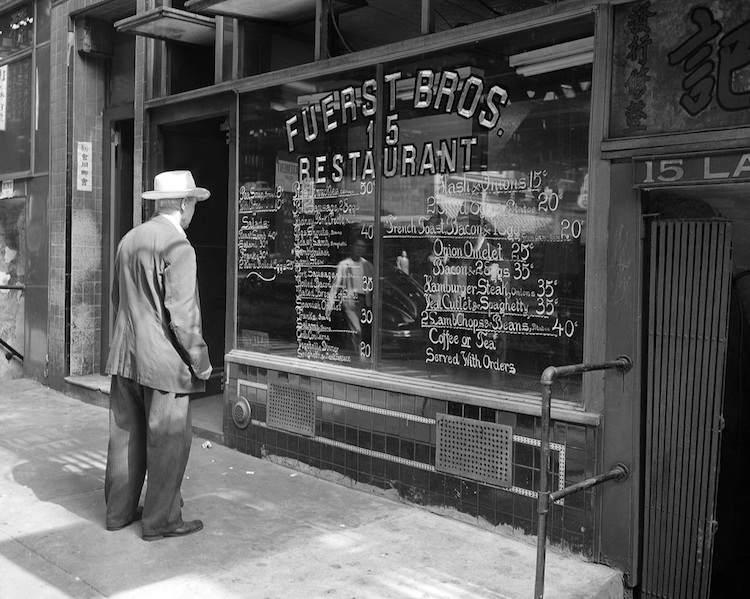
A prospective customer grumbles under his breath at the prices scribbled on the window of this Bowery restaurant on New York's Lower East Side, Sept. 26, 1947. The high cost of living has hit the Bowery like every other place and it's tough on the residents. One of the biggest selling items is soup and coffee, for 10 cents. It used to be a Nickel. A room with a partition and an electric light is up from 30 cents to 40 cents. The dormitories are 35 cents up from 20.
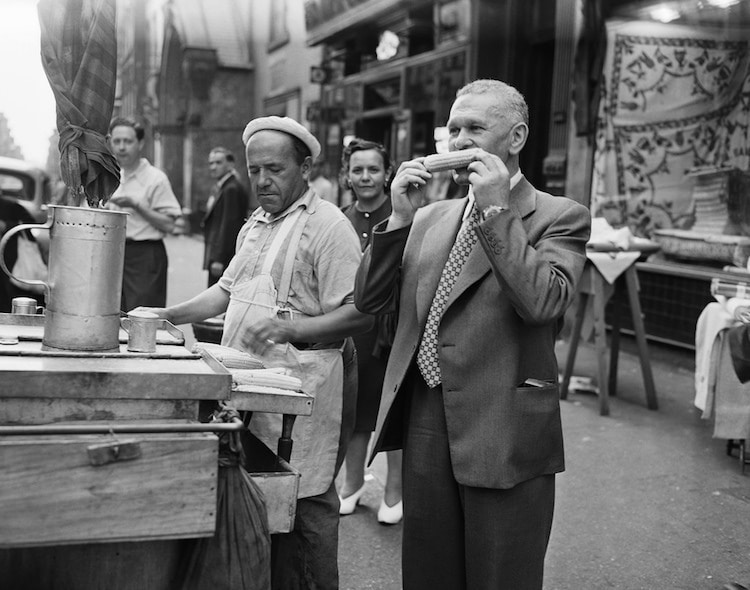
A pedestrian stops and enjoys a hot ear of corn from the vendor, at left, with his corn cooking machine in New York, July 14, 1947.
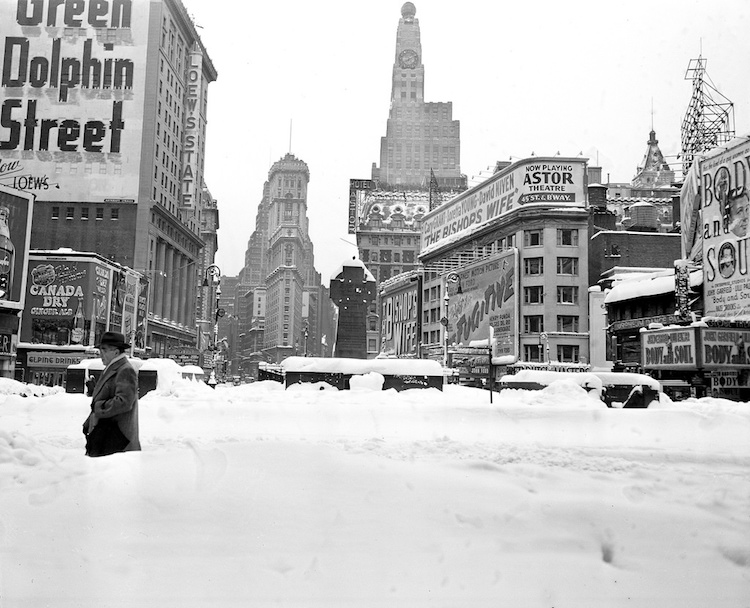
A pedestrian walks between drifts of snow in Times Square in New York City, Dec. 27, 1947, following the record-breaking snowfall of the day before. This view looks south on Broadway with the Times Building in the center background.
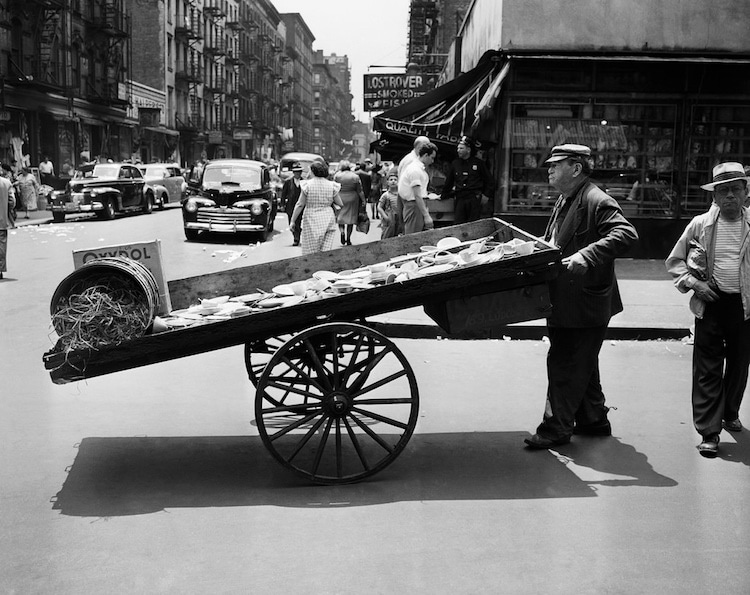
An elderly street merchant wheels his push cart loaded with crockery slowly along at the corner of Orchard and Delancy Streets on the Lower East Side of New York, July 14, 1947. Many a big business had its beginnings on the sidewalks of New York or in the push carts used by curb-side merchants.
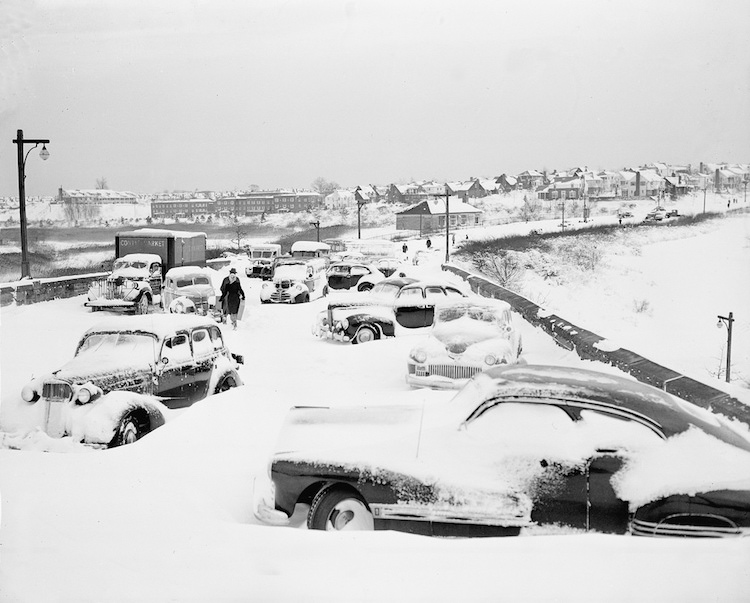
Pedestrians make their way in between cars stalled on the bridge while crossing the Grand Central Parkway at Union Turnpike, Kew Gardens, Queens, N.Y., Dec. 27, 1947. A record-breaking 25.8-inch snowfall caused 21 cars, 3 buses and 2 trucks to be abandoned in the drift in this area.
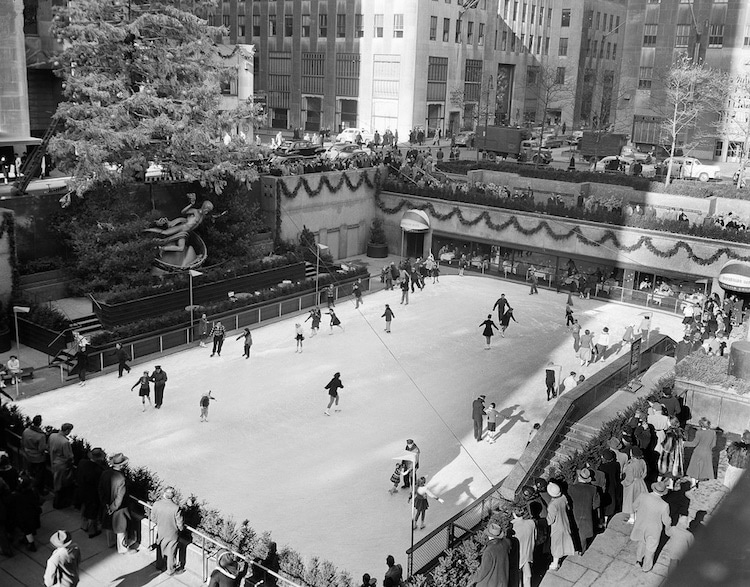
With the famed Rockefeller Center Christmas tree rising above them, skaters glide on the ice at the center's skating rink in midtown Manhattan, New York, in this photo from Dec. 8, 1949.
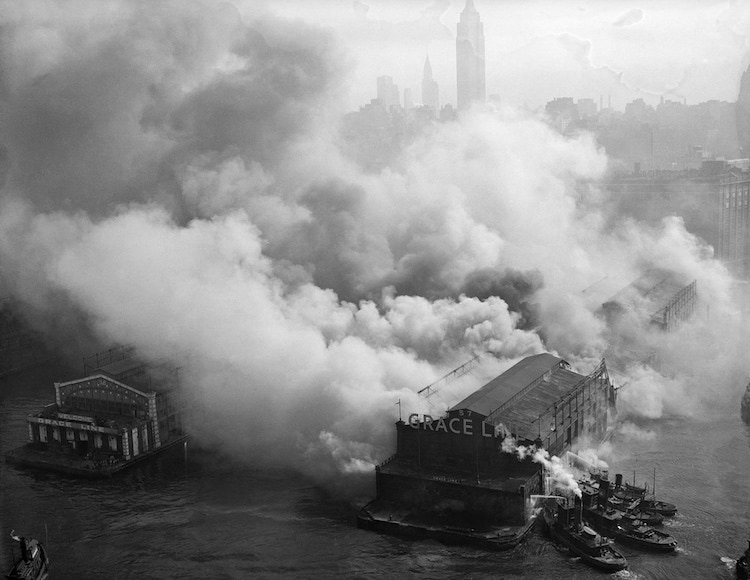
Smoke from a massive fire pours out of Pier 57 on the Hudson River at 15th Street in New York, Sept. 29, 1947. The blaze swept the structure for more than 16 hours causing most of the pier to collapse into the river.
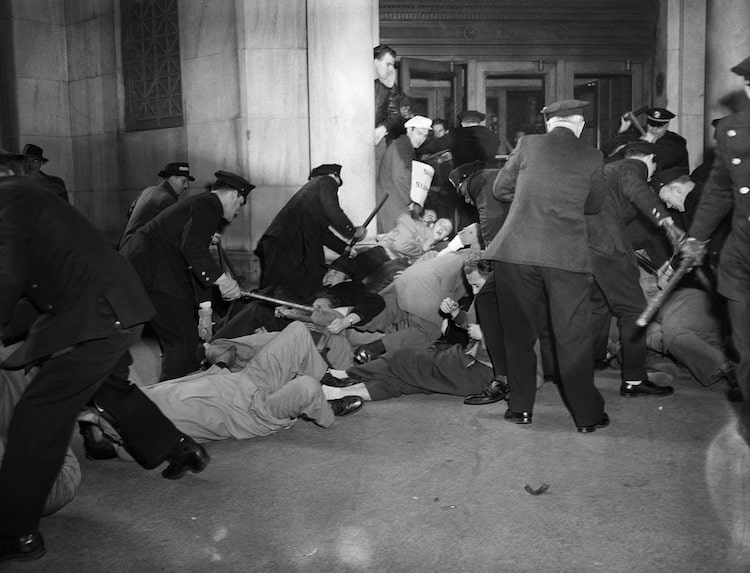
Police and pickets scuffle at the entrance of the New York Stock Exchange at 11 Wall Street in New York, March 30, 1948. Two waves of pickets rushed police guarding the entrance on the morning of the second day of the United Financial Employees Union (AFL) Strike against the New York Stock Exchange.
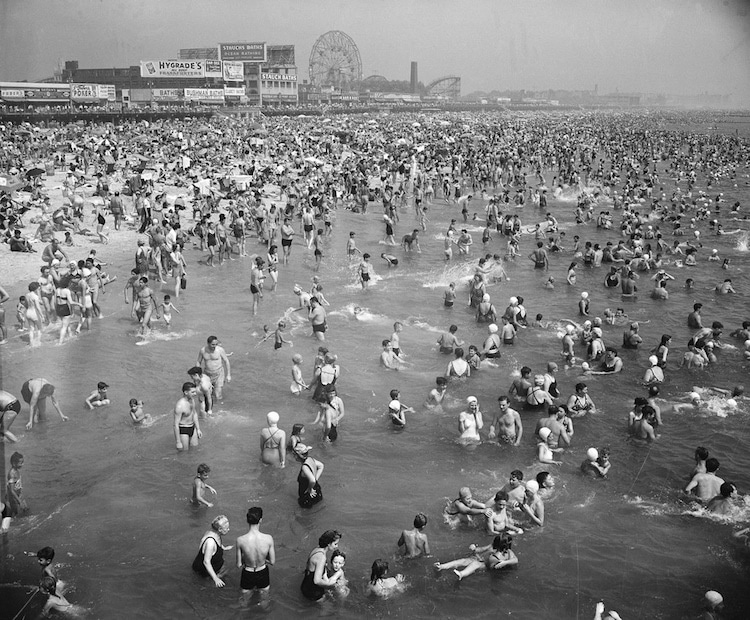
This general view from the Steeplechase Pier shows part of the crowded beach at Coney Island in Brooklyn, N.Y., Aug. 28, 1948. In the background beyond the boardwalk is the ferris wheel, center, and the Cyclone roller coaster at right.

Three-quarters of a million people crowd into Times Square, in New York, Dec. 31, 1949, to welcome in the New Year.
h/t: [Vintage Everyday]











































































